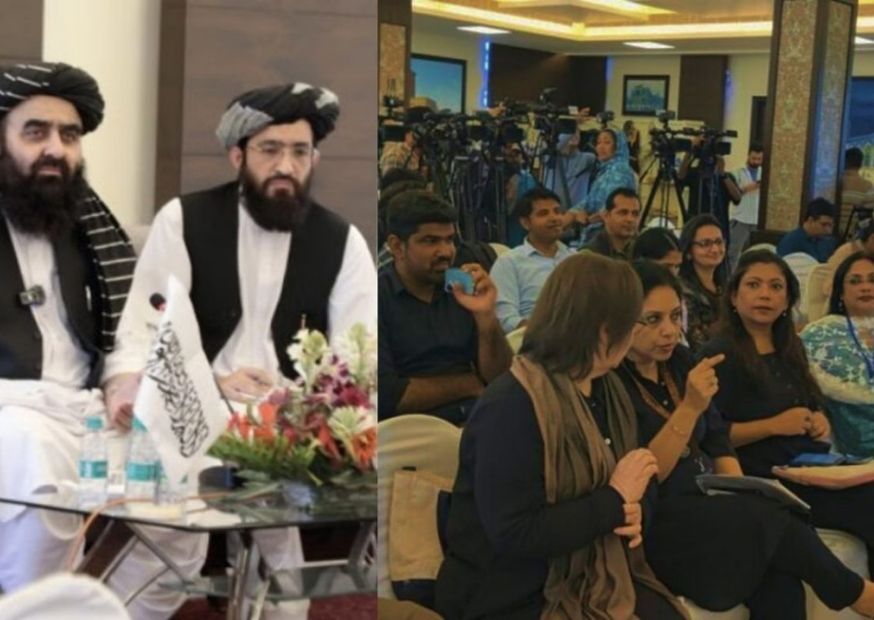NEW DELHI: In a striking reversal of optics, women journalists were seated prominently in the front row during Afghan Foreign Minister Amir Khan Muttaqi’s second press conference in New Delhi — a move widely seen as damage control after intense backlash over their exclusion from his earlier media appearance.
The controversy erupted when female reporters were denied entry to Muttaqi’s first press briefing, sparking outrage across media circles, rights groups, and political quarters. Social media erupted with criticism, accusing both the Afghan delegation and Indian authorities of endorsing discriminatory practices. Within 48 hours, the scene changed dramatically — with women not only present but placed at the forefront.
Muttaqi later claimed the initial exclusion was “unintentional,” attributing it to logistical confusion and short notice. However, observers say the sudden course correction reflected mounting diplomatic pressure and global scrutiny rather than genuine inclusivity.
Indian opposition leaders also seized on the controversy, calling it “a disgrace on Indian soil” and urging the government to take a stronger stance against gender-based discrimination, especially when hosting representatives of the Taliban regime.
The United Nations has repeatedly condemned restrictions on Afghan women, describing the Taliban’s policies as “gender apartheid” — with severe limitations on education, employment, mobility, and even basic social freedoms.
Though the second press event attempted to project a more balanced image, critics argue the damage to credibility is already done. The incident has become symbolic of the broader struggle for women’s rights under the Taliban, and of how gender exclusion — even abroad — continues to shadow Afghanistan’s diplomacy.
This story has been reported by PakTribune. All rights reserved.



